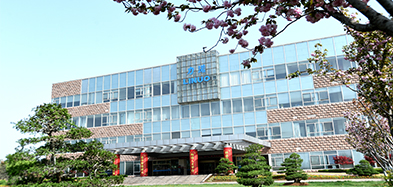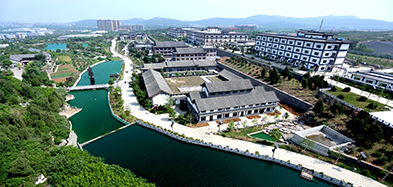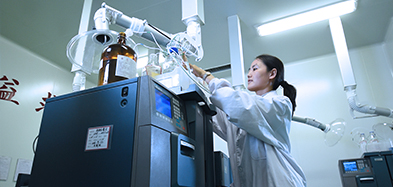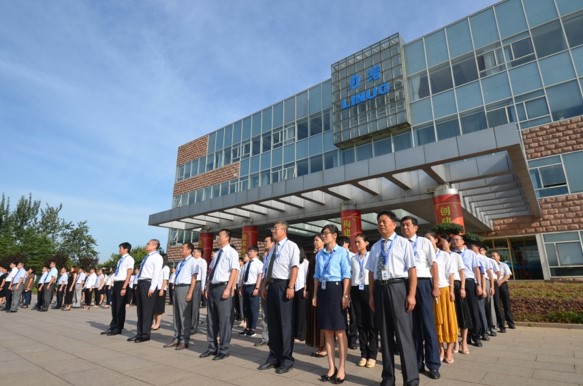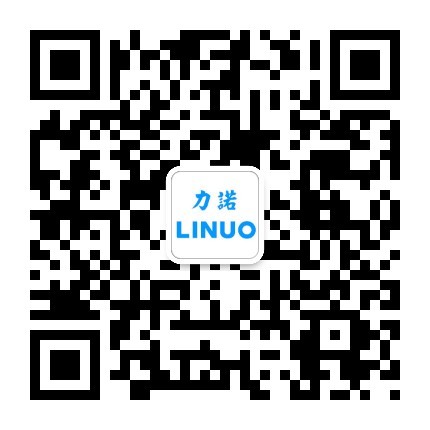1. Establishment
In 1907 the first CTM pharmacy of Hongjitang was opened in Jinan, at 23 Yuanqian Avenue (now called Shengfuqian Avenue), in what was previously a barber shop, where Shandong Government Medical Bureau was located.
In 1915 the shop was burnt down in a military mutiny, so Hongjitang opened its second shop at Fudong Avenue, and then moved to 23 Yuandong Avenue (now 113 Quancheng Road) in 1916. This shop was the headquarters of Hongjitang, and became known as the East Shop.
2. Early Growth
In 1909 Hongjitang Ejiao factory, with 36 workshops, 7 parlours and 9 dormitories,was built in Dongliushui Street (near the Crescent Spring in the Wulongtan Park). It cost 4,215 silver dollars and covered an area about 1,867 m2.
In 1911, Mr Yue Jingyu set up a storehouse for Hongjitang in Shunhuangmiao Street. In 1922, he raised 13,500 silver dollars to purchase 25 Bangpeng Street, the residence of Chen Mian, a well known scholar in the Qing Dynasty, and transformed it into a storehouse. This storehouse covered an area of about 4000 m2 with more than 100 rooms, of which 84 were used for storage and 23 as dormitories.
In 1914, Hongjitang Ejiao won the Supreme Gold Medal at the Shandong Products Exhibition.
In 1917 Hongjitang Ginseng, Antler and Ejiao House, a branch of Hongjitang Ejiao Factory, was established in Dajiangjia Lane (hutong) outside Qianmen in Beijing.
In August 1920 Hongjitang opened its West Shop at 375 Jingerweiwu Road. Mr Yue Jingyu purchased this property of about 660 m2 at a cost of 9,500 silver dollars and built two two-storeyed houses, the design resembling the headquarters. Above the front door of the main building hung the plaque of Hongjitang in gold font, with two smaller plaques on either side of it. On these four plaques were inscribed the principles of Hongjitang: follow the traditional TCM preparation methods; provide quality TCM at a fair price; carefully produce TCM; and use quality-assured raw materials.
3. The 1930’s and 1940’s
In 1934 Mr Yue Jingyu invested 18,000 silver dollars and bought another property of 270 m2 at 148 Jing’erweiyi Road. In 1935 the building was turned into the Middle Shop of Hongjitang, which is also known as the Ejiao Shop.
In 1945 Dacheng Shop was opened in Wanxin Street outside Jinan’s Puli Gate, also serving as the procurement department of Hongjitang.
4. The early years of the PRC
In 1952, a new extraction (decoction) workshop was built at 25 Bangpeng Street. It was named Hongji Pharmaceutical Factory. This factory had 162 employees and started to manufacture TCM tablets.
In July (or August) 1955 Hongjitang was partially nationalised and affiliated to the Jinan Light Industry Bureau. In January 1956 all the subsidiaries of Hongjitang together with the other historic pharmacies in Jinan were nationalised and completed the transformation integrated into the Jinan Medicinal Materials Company.
In June 1956 the three shops were merged into the Hongjitang Shop. The storehouse became the wholesale department and part of the medicinal processing business was turned into a TCM extraction factory. Finally, Hongjitang and 45 other TCM factories were merged into the Hongji Pharmaceutical Factory, Genyitang Pharmaceutical Factory and Yongchang Pharmaceutical Factory. Hongjitang and its three outlets were renamed the Jinan State-Private Hongji Pharmaceutical Factory.
In October 1957, the Joint State-Private Hongji Ejiao Factory and Jinan Tianyitang Ejiao Factory were merged into the Jinan Joint State-private Ejiao Factory, located at 101 Dongliushui Street. At the end of 1957, the three outlets of Hongjitang were transferred to the Jinan Medicinal Materials Company, which was renamed the Jinan Pharmaceutical Group Co., Ltd. in 1996. Henceforth, Hongjitang Pharmaceutical Factory and its outlets were run as separate businesses����;the former was for pharmaceutical production and the latter for sales. The factory later became Shandong Hongjitang Pharmaceutical Group Co., Ltd. and the outlets were turned into Hongjitang Medicine Group Co. Ltd.
5. The 1960’s
In March 1960 Hongjitang was transformed into the Jinan Joint State-Private Hongji Pharmaceutical Factory by merging more than 30 pharmaceutical factories, including Hongjitang Pharmaceutical Factory, Yongchang Pharmaceutical Factory, Genyitang Pharmaceutical Factory (Genyitang is now the third workshop of Hongjitang Pharmaceutical Group, manufacturing honeyed bolus) and Jinan Ejiao Factory, located at 26 Guyishi Street, Jinan.
In 1960 Jinan Ejiao Factory was removed from Dongliushui Street to 24 Banqiao Road, Tianqiao District
In 1964, Jinan Joint State-Private Hongji Pharmaceutical Factory was placed under the management of Jinan First Commercial Bureau. In May of that year, Shandong People’s Committee ratified the enterprise as a state-owned enterprise in the Province. In January 1965 the western medicine business and assets of Hongji Pharmaceutical Factory were transferred to the Jinan Branch of Shandong Xinhua Pharmaceutical Group.
In March 1966 its placental globulin product business was transferred to Jinan Maternal and Children Health Hospital. In September 1966, Jinan Joint State-private Hongjitang Pharmaceutical Factory was renamed as Jinan People’s Pharmaceutical Factory. The trademark was changed from a private trademark to a public trademark. In October of that year, the factory was moved to 89 Heihuquan Road.
In October 1968 Shandong Medicinal Material Company instructed Jinan People’s Pharmaceutical Factory to transfer part of its Ejiao production to Dong’e Medicinal Material Company. On 17th November 1968, the Ejiao Production Transfer Agreement was signed. However, Jinan People’s Pharmaceutical Factory retained the brand name of Hongjitang Ejiao, the Ejiao professionals and the core techniques and formulations of Ejiao preparation.
6. The 1970’s and 1980’s
In 1970 a TCM formulation service was established near the East Shop of Hongjitang. In September 1976 Jinan People’s Pharmaceutical Factory established its Huantai TCM Processing Plant.
In 1980 Jinan People’s Pharmaceutical Factory was renamed Shandong Jinan TCM Factory, and affiliated to Shandong Medicinal Material Company. The address was changed to 173 Heihuquan Road. In 1984 Shandong Jinan TCM Factory was put directly under Shandong Pharmaceutical Company.
7. The Renaissance
In December 1994, Shandong Jinan TCM Factory was moved from 173 West Heihuquan Road to 24 Huangtaibanqiao Road.
In March 1999 Shandong Jinan TCM Factory was restructured to Jinan Shenfang TCM Co., Ltd, a state-owned holding company. In July (or August), its name was changed back to the original - Jinan Hongjitang Pharmaceutical Co., Ltd.
In August 2004 Jinan Hongjitang Pharmaceutical Co., Ltd. moved to a new address at 360 Hualong Road in Jinan’s High-tech District.
In September 2008 the subsidiary enterprises of Linuo Group including Hongjitang Pharmaceutical Co., Ltd., Yongning Pharmaceutical Co., Ltd., Kefeng Pharmaceutical Co., Ltd., Keyuan Pharmaceutical Co., Ltd., and Linuo Pharmaceutical Co., Ltd. merged into Hongjitang Pharmaceutical Group.
In March 2011, the foundation stone of Hongjitang TCM Cultural and Industrial Base was laid in Linuo Technology Park. In October 2012 Jinan Hongjitang Pharmaceutical Co., Ltd. fully merged into Linuo Group. In March 2012 the name of Hongjitang Pharmaceutical Co., Ltd. was changed to Shandong Hongjitang Pharmaceutical Co., Ltd. In September 2012 Shandong Hongjitang Pharmaceutical Co., Ltd. moved to Hongjitang TCM Cultural and Industrial Base in Linuo Technology Park. In August 2015 Shandong Hongjitang Pharmaceutical Co., Ltd. changed its name to Shandong Hongjitang Pharmaceutical Group Co., Ltd.







